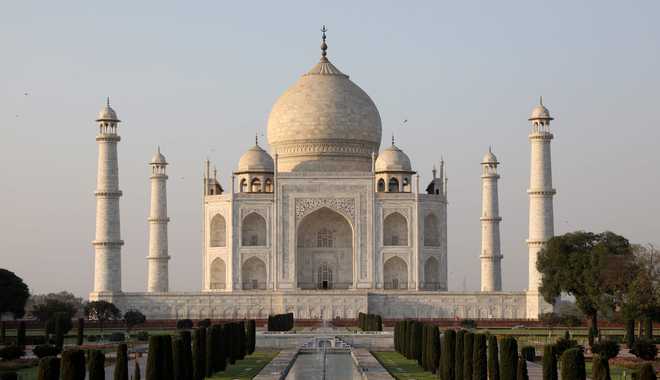Satya Prakash
Tribune News Service
New Delhi, April 17
Almost 365 years after Mughal Emperor Shah Jahan built Taj Mahal, the ownership of the 'monument of love' has become a subject matter of a dispute before the Supreme Court.
Uttar Pradesh Sunni Wakf Board - which is fighting a protracted legal battle to get the title of the disputed site at Ayodhya - has claimed that it's a Waqf property and it should be allowed to maintain it.
Under Islamic practice, Waqf means an endowment of property by a Muslim for a religious or charitable purpose.
On Tuesday, its counsel told the top court that Taj Mahal was owned by the Almighty but it must be listed as property of the Waqf Board for practical purposes.
A Bench headed by the Chief Justice of India is hearing a petition filed by Archaeological Survey of India against a Wakf Tribunal's 2005 decision ordering Taj Mahal to be registered as a Uttar Pradesh Sunni Waqf Board's property.
The top court - which had stayed the tribunal's order - on Tuesday termed it problematic and adjourned the case for further hearing on July 27.
Known as one of the Seven Wonders of the World and a UNESCO World Heritage Site, the Taj Mahal was built between 1632 and 1653 at Agra by Mughal Emperor Shah Jahan as a tomb for his beloved wife Mumtaz Mahal. She had died in 1631 while giving birth to their 14th child.
The Taj had hit national headlines last year after being dropped from the state government's tourism booklet. Later, it was mentioned as a place of pride in the Uttar Pradesh Government's 2018 calendar.
Chief Minister Yogi Adityanath - who visited the Taj last month to review tourism schemes - had described the monument as "a priceless gem" and said everyone should be committed to its preservation and protection.
Under a law enacted by Parliament, ASI has been maintaining all ancient monuments in India.
Waqf board wanted ASI to consider registering Taj Mahal as a waqf property, only for maintenance.
But ASI has opposed it would create problems as similar claims for Red Fort, Fatehpur Sikri and some other historic monuments might come up.
Unlock Exclusive Insights with The Tribune Premium
Take your experience further with Premium access.
Thought-provoking Opinions, Expert Analysis, In-depth Insights and other Member Only Benefits
Already a Member? Sign In Now











